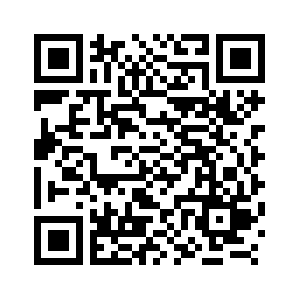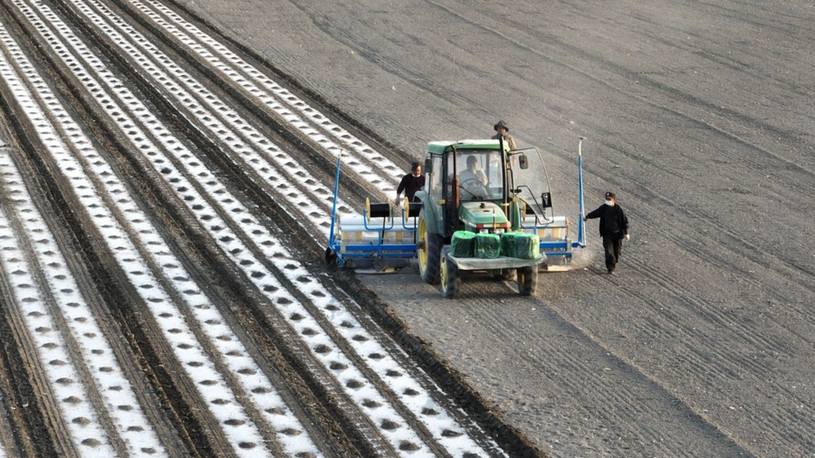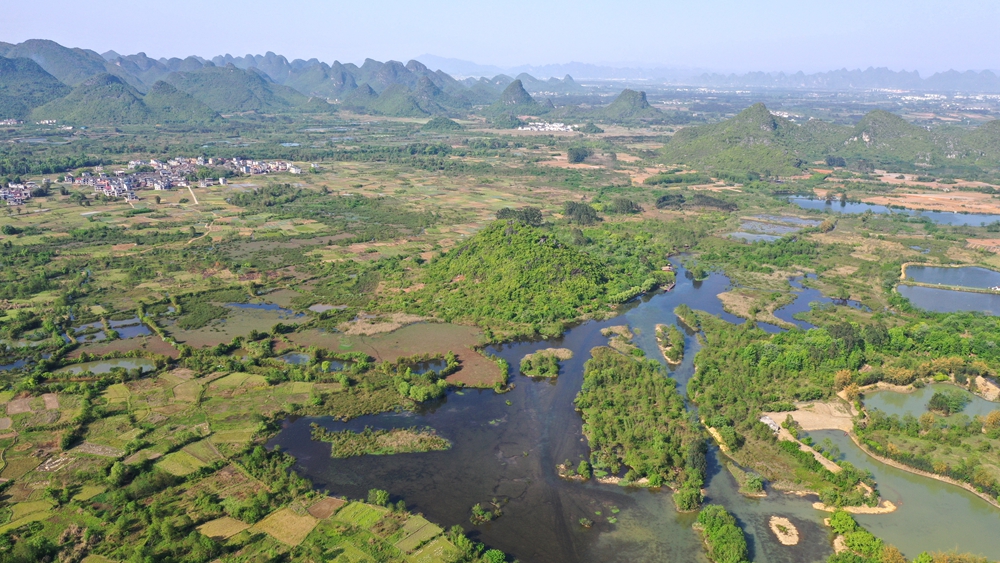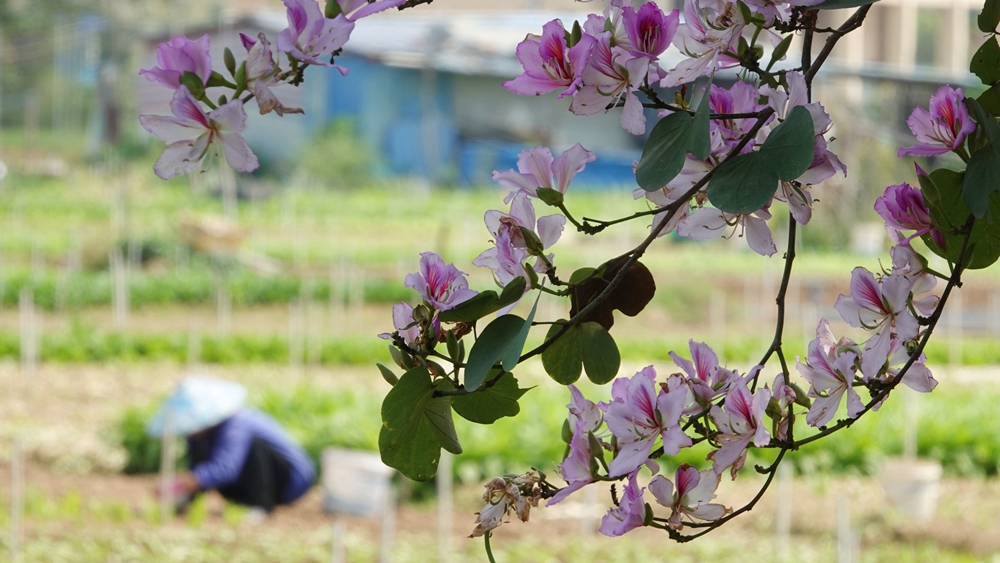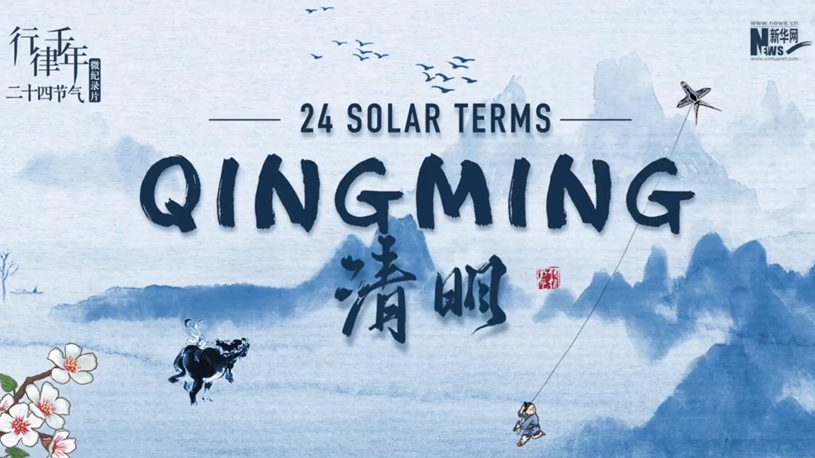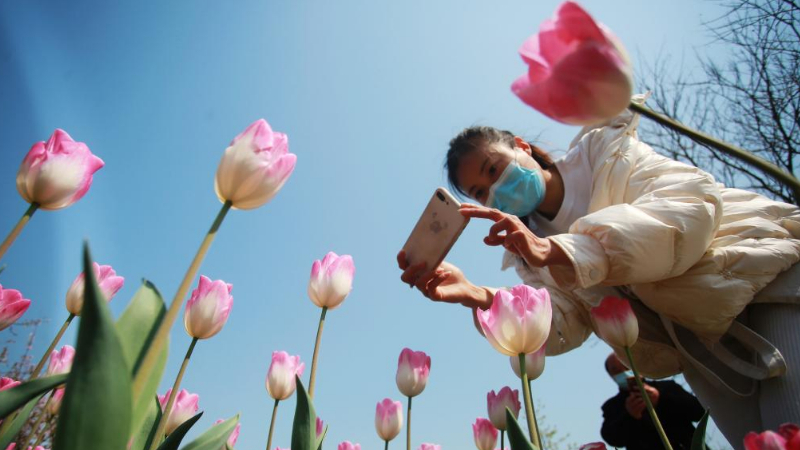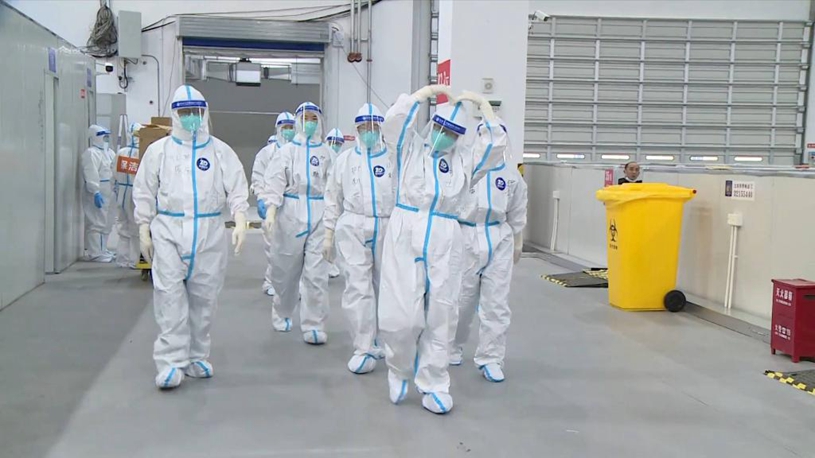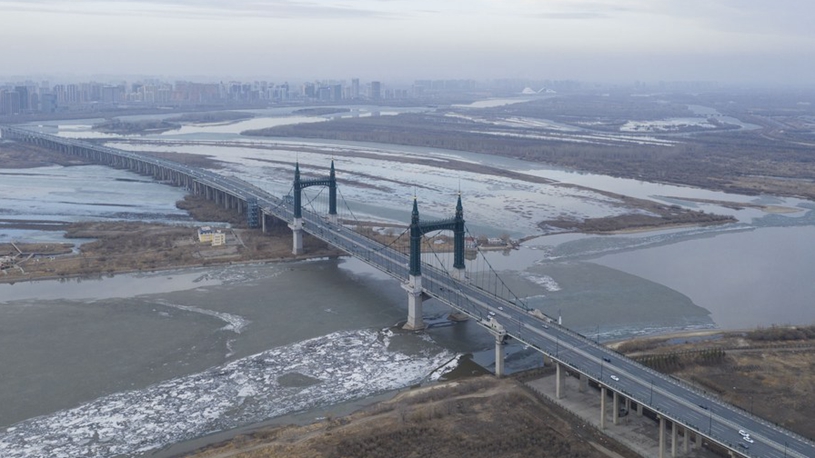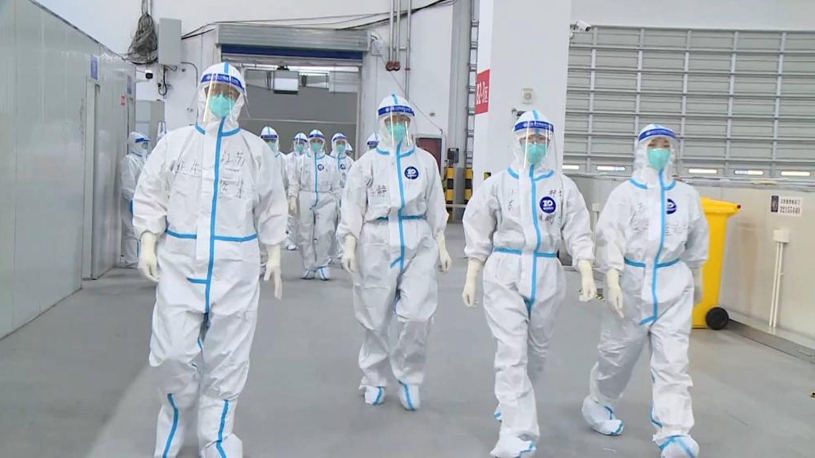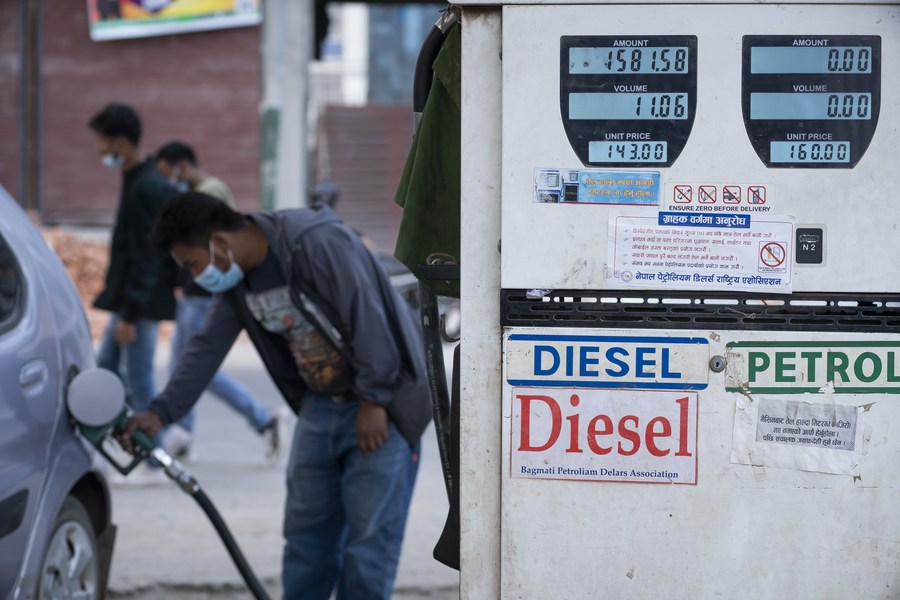
Fuel prices are shown at a gas station in Lalitpur, Nepal, April 6, 2022. Fuel prices in Nepal saw an increase recently. (Photo by Hari Maharjan/Xinhua)
Nepal's forex reserves are currently only enough to sustain the import of goods and services for 6.7 months, below the central bank's target. Vehicles and spare parts are among the largest import items in Nepal.
KATHMANDU, April 10 (Xinhua) -- Nepal's central bank has instructed the country's commercial banks not to issue new letters of credit for the import of vehicles and other non-essential goods amid dwindling foreign exchange reserves.
"We told the top officers of the commercial banks to stop issuing letters of credit for the import of vehicles and other goods which they consider as non-essential goods," Prakash Kumar Shrestha, chief of the economic research department at Nepal Rastra Bank, told Xinhua recently.
"We must preserve the foreign exchange reserves to finance essential goods such as medicines, instead of spending them on luxury goods in time of crisis," he added.
Since the early months of the current fiscal year that began in mid-July 2021, Nepal has seen its forex reserves continue to fall due to surging imports, declining inflows of remittance and meagre earnings from tourism and exports.
By mid-February, the country's gross forex reserves had decreased 17 percent to 9.75 billion U.S. dollars from 11.75 billion dollars in mid-July 2021, according to central bank figures.
The forex reserves are now only enough to sustain the import of goods and services for 6.7 months, below the central bank's target for at least seven months.
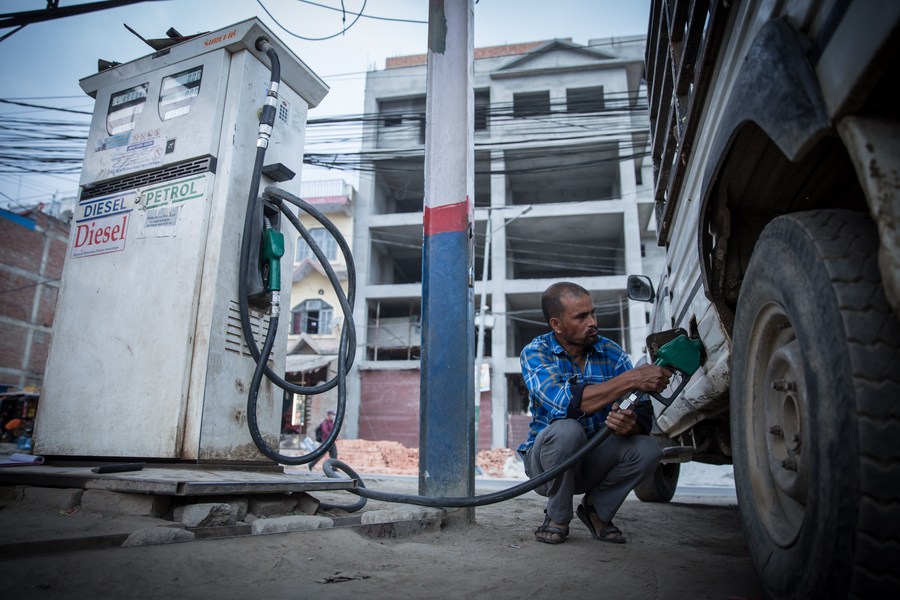
A man refuels his vehicle at a gas station in Lalitpur, Nepal, April 6, 2022. Fuel prices in Nepal saw an increase recently. (Photo by Hari Maharjan/Xinhua)
Rising imports amid falling forex earnings have also contributed to a record-high balance of payment deficit, sparking concerns about the country heading toward the direction of Sri Lanka.
Nepal had a balance of payment deficit of 2.07 billion dollars in the first seven months of the current fiscal year, as against a surplus of 817.6 million dollars during the same period in the previous fiscal year, according to the central bank.
The central bank has issued a directive as other indirect measures had failed to cut imports significantly.
The central bank "clearly asked us not to open letters of credit for non-essential goods including vehicles, and we're going to follow the instruction," Ashoke Rana, chief executive officer of the Himalayan Bank, told Xinhua.
"They told us that discouraging the import of vehicles would also contribute to a decreasing consumption of fuel," he said.
As in other countries, fuel prices in Nepal have gone up over the Russia-Ukraine conflict and other factors.
Vehicles and spare parts are among the largest import items in Nepal. During the first eight months of the current fiscal year, the South Asian country imported vehicles and spare parts worth 75.95 billion Nepali rupees (roughly 626 million U.S. dollars), according to the Trade and Export Promotion Center. ■
